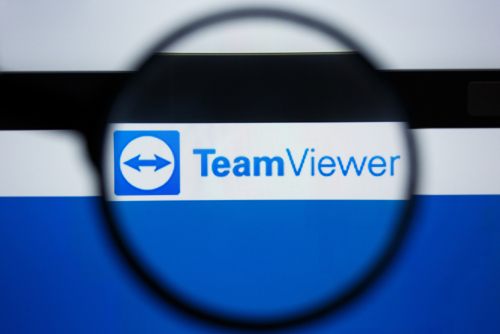Lawyer censured for using TeamViewer to snoop on former firm's business activity

Image from Shutterstock.
A lawyer in Cherry Hill, New Jersey, has been censured after acknowledging that he “fell into stupid” and accessed his former law firm’s computer system to monitor his former partner’s business activity.
The New Jersey Supreme Court censured lawyer Justin L. Scott in a May 31 order, Law360 reports.
The New Jersey Supreme Court’s disciplinary review board had recommended a censure in an October 2022 decision.
Scott and Charles Bratton practiced elder law in a Haddonfield, New Jersey, firm that came to be known as Bratton Scott. Scott and Bratton disagree on whether Scott was fired, as was permitted by their partnership agreement, or whether he left on his accord.
A new attorney at Bratton’s firm noticed that something was amiss when he was working on the laptop once used by Scott, according to the disciplinary review board. The new lawyer said he saw an incoming connection to a remote access program called TeamViewer, and his “computer screen started moving” without his input.
The new lawyer took control of his mouse, and the connection ended. When the new lawyer searched for TeamViewer on his computer, he saw that it had a connection named “Justin Scott.” The new lawyer reported the incident to Bratton.
A forensics computer company investigated and reported that Scott had accessed the computer system six times in 2019—all after Scott left the firm. The remote access would allow Scott to see any application on the laptop, including the Time Matters program. The investigation found that Scott had not copied or transferred files using TeamViewer.
Bratton and Scott differed on whether TeamViewer was installed by the firm’s technology company or by Scott. Scott said the company installed the program, so that he could work remotely. Bratton said his office didn’t use TeamViewer, and he wouldn’t have authorized its installation. A technology company representative also said it had not installed TeamViewer.
Scott initially said the TeamViewer access was accidental. But five months later, Scott admitted that access was intentional, and he logged in to see calendars.
Scott said he was “mostly interested in seeing how Mr. Bratton’s practice was doing. I think it is fair to say that each and every login by me was to see what I could learn regarding Mr. Bratton’s calendar and who was referring business to him. Typically, I would search specific names to see which professionals were referring clients to him. … My goal was to sit on my couch and compare Mr. Bratton’s week to mine.”
Scott attributed the remote access to his competitive conduct and having “fell into stupid,” the disciplinary review board said.
The disciplinary review board concluded that Scott “knew he was not permitted to access that system but did so anyway to, at a minimum, quench his curiosity concerning the status and success of Bratton’s legal practice.”
The disciplinary review board also concluded that Scott initially misrepresented the reason that he accessed Bratton’s computer system. And the “overwhelming circumstantial evidence” establishes that Scott installed TeamViewer, the disciplinary review board said.
Scott did not have prior discipline. He was censured for violating ethics rules barring false statements of material fact to disciplinary authorities, committing an act that reflects adversely on a lawyer, and engaging in conduct involving dishonesty or deceit.
Scott declined to make an immediate comment to the ABA Journal, telling the Journal that he would have to discuss the matter with his attorney.



